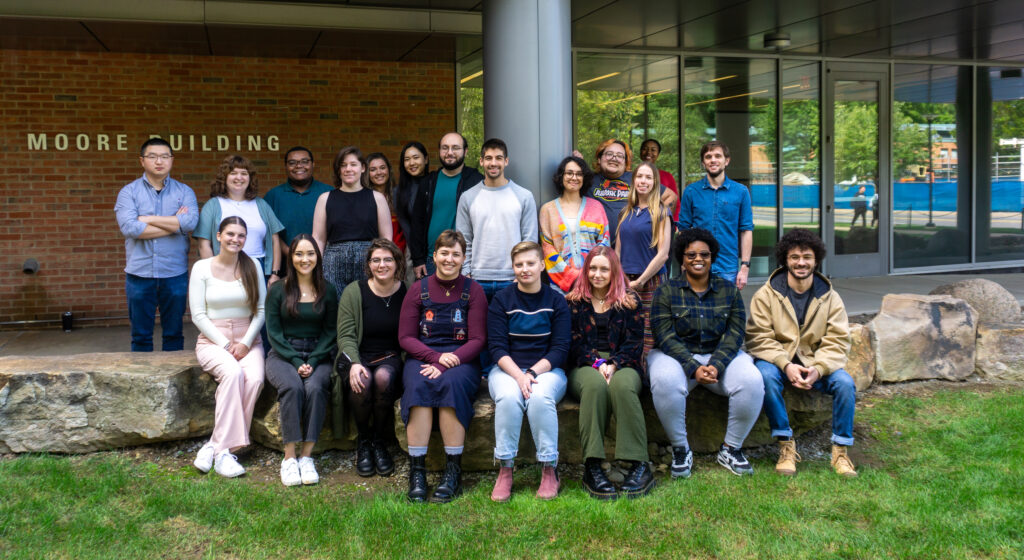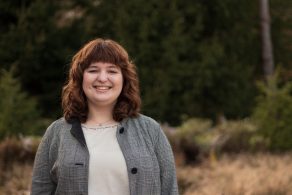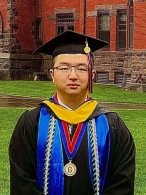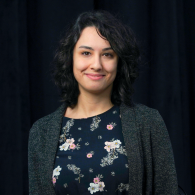
We encourage our students to pursue their intellectual passions and master both traditional and innovative research methods.
Our students have received the following honors:
- Awards and Honorable Mentions from the NSF Graduate Research Fellows Program
- Harold K. Schilling Dean’s Graduate Scholarship
- Geis Memorial Award
- Clara Mayo Grant from the Society for the Psychological Study of Social Issues
- Social Sciences and Humanities Research Council of Canada Graduate Fellowship
- APA Travel Award and Society for Personality and Social Psychology Travel Award
- Psi Chi Graduate Research Grant
- The following Penn State Awards: Africana Research Center Award, Awards for excellence in the PSU Graduate Student Exhibition, Graduate Scholar Award, Liberal Arts RGSO Dissertation Support Award, Penn State Alumni Association Dissertation Award, and the Welch Nagle Award
They have also been selected to attend the summer Institute in Social and Personality Psychology and the International summer School in Affective Sciences.
Social Psychology Graduate Students
Our Current Students:
Stephen Anderson works with Dr. Daryl Cameron in the Empathy and Moral Psychology Lab. He is broadly interested in moral psychology, with a particular focus on how imagination is involved in empathy and moral judgment. His current projects study whether empathy is a creative process, how a person’s conceptualization of suffering influences empathy, and how perceptions of the past and future influence moral judgments in the present. Before coming to PSU, he received a B.S. in Psychology and Music from Allegheny College, worked as a research assistant in Michelle Meyer and Chris Chabris’ interdisciplinary lab at Geisinger Health System, and was a lab manager for Kurt Gray’s Mind Perception and Morality Lab at UNC-Chapel Hill.
Rosemary Aviste works with Dr. Janet Swim in the Pro-environmental Action Lab (PACT). Rosemary’s research interests include redefining human relationships with nature by bridging Western and non-Western worldviews. Broadly speaking, her research considers animistic mindsets and engagement with the more-than-human world to co-create sustainable futures for humans and non-humans. Rosemary is also interested in using transdisciplinary and multi-method approaches to translate these ideas for the development of transformative and critical outdoor education programs.
Terri Frasca (she/her) is a Ph.D. candidate in the dual-title Ph.D. program in Psychology (social area) and Women’s, Gender, and Sexuality Studies (primary advisor: Dr. Stephanie Shields). She broadly studies the experiences of women in the workplace through an intersectional framework, focusing on the role of gender, race, age, and sexuality. Terri is also interested in perceptions of diversity, equity, and inclusion initiatives in the workplace, and how responses to these initiatives may be informed by our social identities. Example projects include: perceptions of leaders who disclose menopause, the consequences of being labeled “emotional” as a woman versus a man, and how apologies function differently in the workplace for men and women. Terri received her B.S. from the University of North Carolina – Chapel Hill, and worked as a lab manager for Dr. Sarah Gaither’s Identity and Diversity Lab.
Joseph Guerriero works with Dr. Janet Swim as a member of the Pro-Environmental Action (PAct) lab. He is interested in why people adopt pro-environmental attitudes and engage in pro-environmental behaviors relevant to ensuring a healthy and sustainable future. Joe often employs existential psychology and evolutionary theory when thinking about these topics and conducting his research.
Eliana Hadjiandreou works with Dr. Daryl Cameron in the Empathy and Moral Psychology (EMP) Lab. Her work examines norms and perceptions around empathy, compassion, and selfishness, with a particular interest on how such perceptions can affect our willingness to include others in our moral circles and engage in dialogue across different group divides. Eliana has been funded by the A.G. Leventis Foundation to study how parochial empathy born out of life adversity can lead to constructive outcomes, andby Penn State’s McCourtney Institute for Democracy to study factors that foster empathy between political rivals. Eliana is also an affiliate at the Center for the Science of Moral Understanding at the University of North Carolina, Chapel Hill.
Elise Haynes works with Dr. Karen Gasper in the Feelings, Behavior, and Information Processing lab. Broadly, her research interests include emotion, attention, and social cognition. Her work specifically focuses on the emotions of shame and guilt, and their influences on cognition and behavior. Elise received her B.A. in Psychology from Lee University in 2019.
Chenyang He works with Dr. Karen Gasper in the Feelings, Behavior, and Information Processing lab. She is broadly interested in the relationship between emotion and decision-making. Her current research focuses on 1) how attention shape emotion and beliefs about emotion, and 2) how negative feelings influence people’s risk judgment and risk decisions.
Nicole Hedgecoth works with Dr. Reg Adams in the Social Vision and Interpersonal Perception lab and Dr. Jes Matsick in the Underrepresented Perspective lab. They also have continued collaboration with Dr. Sally Farley from the University of Baltimore. Nikki’s broad research interests are at the intersection of race, gender/sex, and nonverbal behavior, with a particular interest in bridging perceptual and action research in the context of nonverbal behavior. Nikki received their B.A. in Psychology and an M.S. in Negotiation and Conflict Management from the University of Baltimore.
Danfei Hu works with Dr. Karen Gasper in the Feelings, Behavior, and Information Processing lab. She is broadly interested in the cognitive and motivational components of emotional processing and emotion regulation. Current projects explore 1) how people control their emotions when bad things happen, and 2) how individuals’ beliefs about emotion impact their information processing and behavior.
Mary Kruk is a Doctoral Candidate in the dual-title Ph.D. program in Psychology (social area) and Women’s, Gender, and Sexuality Studies (primary advisor: Dr. Jes Matsick). Her research examines experiences of people with stigmatized identities, with a focus on women and sexual minorities. She is interested in how stigmatized individuals determine the likelihood of prejudicial experiences in their surroundings through safety and threat cues. In addition, she studies low status groups’ attitudes toward high status groups and how low status groups interpret behaviors of high status groups in intergroup contexts. In 2019, she received Penn State’s College of Liberal Arts’ Eleanor Roosevelt Memorial Scholarship and the Laura Richardson Whitaker Award for her research excellence in Women’s, Gender, and Sexuality Studies. In 2020, she became a Translational Science Fellow through the Penn State Clinical and Translational Science Institute, and she received the Superior Teaching and Research (STAR) Award in the College of Liberal Arts. In 2021, she received the Edna Bennett Pierce Prevention Research Center Trainee Research Award. Mary received her B.A. in Women’s Studies from University of Michigan where she worked as research assistant and lab manager in Dr. Terri Conley’s Stigmatized Sexualities Laboratory.
Mike Lengieza works with Dr. Janet Swim also works with Dr. Daryl Cameron as well as Carter Hunt, a member of the Recreation Parks and Tourism Management department. He is interested in the self in relation to nature: How it is influenced by spending time in nature, how it becomes connected to nature, and how it gets in the way of protecting nature. Consequently, his research has focused on how walking in nature or participating in nature-based tourism impacts the self, how connectedness to nature is affected by self-awareness, and how self-interest based appeals influence concern for the environment and pro-environmental related beliefs. Mike also has an interest in eudaimonia and compassion for the environment both of which have featured in his work.
Katherine Lewis research interests include gender, sexism, stigma, close relationships and self. She works with Dr. Terri Vescio. Katie received her B.S. in Psychology from The Ohio State University in 2013 and worked as a lab manager for Dr. Jenny Crocker before beginning graduate school.
Sarah Mowry works with Dr. Sean Laurent in the Morality and Social Cognition Lab. Her research interests include person perception, moral judgments, the connection between moral reasoning and values, and broadly, the use of research to achieve social good. She received her B.S. in 2021 from Ohio State University in Psychology and Women’s, Gender, and Sexuality Studies.
Flora Oswald is a doctoral candidate and Social Sciences and Humanities Research Council Doctoral Fellow in the dual-title PhD program in Psychology (social area) and Women’s, Gender, and Sexuality Studies (advisors: Dr. Jes Matsick and Dr. Reg Adams). Flora is interested in how marginalized identities shape people’s experiences and perceptions of their social worlds, with a particular focus on stereotyping and stigmatization. Much of Flora’s current work bridges feminist social psychological approaches with visual perception research to elucidate the basic mechanisms underlying prejudice and stigmatization of marginalized sexuality, gender, and bodily identities.
Lindsay Palmer is a graduate student pursuing her PhD in Social Psychology. She received her B.A. from the University of Virginia. Before entering graduate school, she worked as a research assistant and lab manager for Dr. Sophie Trawalter’s Social Cognition and Behavior Laboratory. She is currently advised by Jes Matsick. Broadly, her research interests include: academic inclusion, prejudice and stigma.
Hyun Joon Park is currently completing a Ph.D. in social psychology, with a minor in social data analytics (a program focused on applying computational methods to social sciences) at Penn State. He investigates the multilevel pathways (i.e., intrapersonal, interpersonal, intergroup, and regional-level processes) through which psychological threat impacts academic performance, intergroup relations and health, with a focus on testing interventions that mitigate the experience of threat. A defining feature of his research is that he utilizes innovative biological and computational approaches to maximize the ecological validity of his research. He graduated from Korea University with a double major in psychology and economics. Please visit his website for more information.
Jason Qian primarily works with Dr. Jonathan Cook in Group Identity and Social Perception Lab. He is broadly interested in research on stigmatized social identities. More specifically, Jason’s research focuses on, 1) how people manage their stigmatized identities under social pressure (e.g., identity concealment); 2) how it will have an impact on outcome variables (e.g., educational or health-related outcomes); and 3) if there are negative effects, how we can design psychological interventions to mitigate these disparities. Additionally, Jason is interested in research on the intersectionality of different stigmatized identities.
Becca Ruger-Smith Becca has a wide range of research interests, but she is particularly interested in the factors people use when forming moral judgements of others, specifically which ones we tend to care about more than others, and how we deal with particularly complex moral conundrums. Becca’s current research is on praise, blame, and moral or immoral judgements of inactions.
Nathaniel Schermerhorn studies power and masculinity as they relate to intergroup relationships. Primarily, he studies how power affects dynamics between marginalized group members and dominant group members as well as the stereotypes and inequalities that emerge and persist from these dynamics. Second, he applies the findings from power research to politics and social policies. Nathaniel has an emerging interest in how power also affects the relationship between members of one marginalized group with members from another marginalized group. Nathaniel completed his undergraduate studies at the University of Southern California, earned a Master’s in Public Administration from Penn State and now works under the guidance of Dr. Theresa Vescio as a member of the Power, Privilege, and Prejudice Lab.
Samantha Stevens works with Dr. Jonathan Cook in the Group Identity and Social Perception lab, as well as with Dr. Jes Matsick in the Underrepresented Perspectives lab. Broadly speaking, Samantha is interested in understanding the experiences of people with stigmatized identities, with the goals of both advancing psychological science and furthering social equity. She’s particularly interested in the implications of her work for educational, intergroup, and health contexts. Her research focuses on social identity threat, stigma, and intervention science, as well as innovative methodologies for more nuanced approaches to these topics. Before coming to Penn State, Samantha earned her B.S. in Psychology with a minor in Law and Society at the University of California, San Diego.
Natalie Strand works with Dr. Reg Adams in the Social Vision and Interpersonal Perception lab. She is broadly interested in emotion/threat perception, and employs neuroscience methods (e.g., EEG, fMRI) to explore her research questions. Natalie received her B.S. in cognitive neuroscience from Northern Michigan University in 2019.
Jude Sullivan works with Dr. Jes Matsick in the Underrepresented Perspectives (UP) Lab. His research interests are framed around taking a life-course approach to better understand the experiences of people with multiple marginalized identities (i.e., at the intersection of their gender, sexual orientation, race/ethnicity, and age). He is especially interested in the stigma that diverse individuals face across social contexts and in the consequences of (real or perceived) discrimination. Jude received his B.A. in Psychology and B.S. in Aging Sciences in 2022 from the University of South Florida.
Emerson Todd is a Pre-Doctoral Fellow working with Dr. Jes Matsick in the Underrepresented Perspectives (UP) Lab. His research examines identity and stigma through the intersections of race, gender, sexuality, and other marginalized identities. He is especially interested in identity work (e.g., how peoples lived experiences shape their identities and vice versa) and how people with marginalized bodies navigate the social world. Emerson received his B.S. in Psychology and Sociology with a minor in Women Gender and Sexuality Studies (WGSS) from East Tennessee State University in 2020. He earned his M.A. in Sociology in 2022 and is now pursuing the dual-title degree in Psychology (social area) and Women’s, Gender, and Sexuality Studies.
Katsumi Yamaguchi-Pedroza works with Dr. Theresa Vescio in the Gender, Power, and Privilege Lab. Her research interests are broadly related to gender, intersectionality, and processes and experiences of stereotyping and prejudice. Katsumi received her B.A. in Psychology from the University of California, Los Angeles. Prior to graduate school, she worked as a lab manager at the University of California, Irvine.








Social Psychology Post Doctoral Scholars
The Social Area welcomes our Post Doctoral Scholars:







